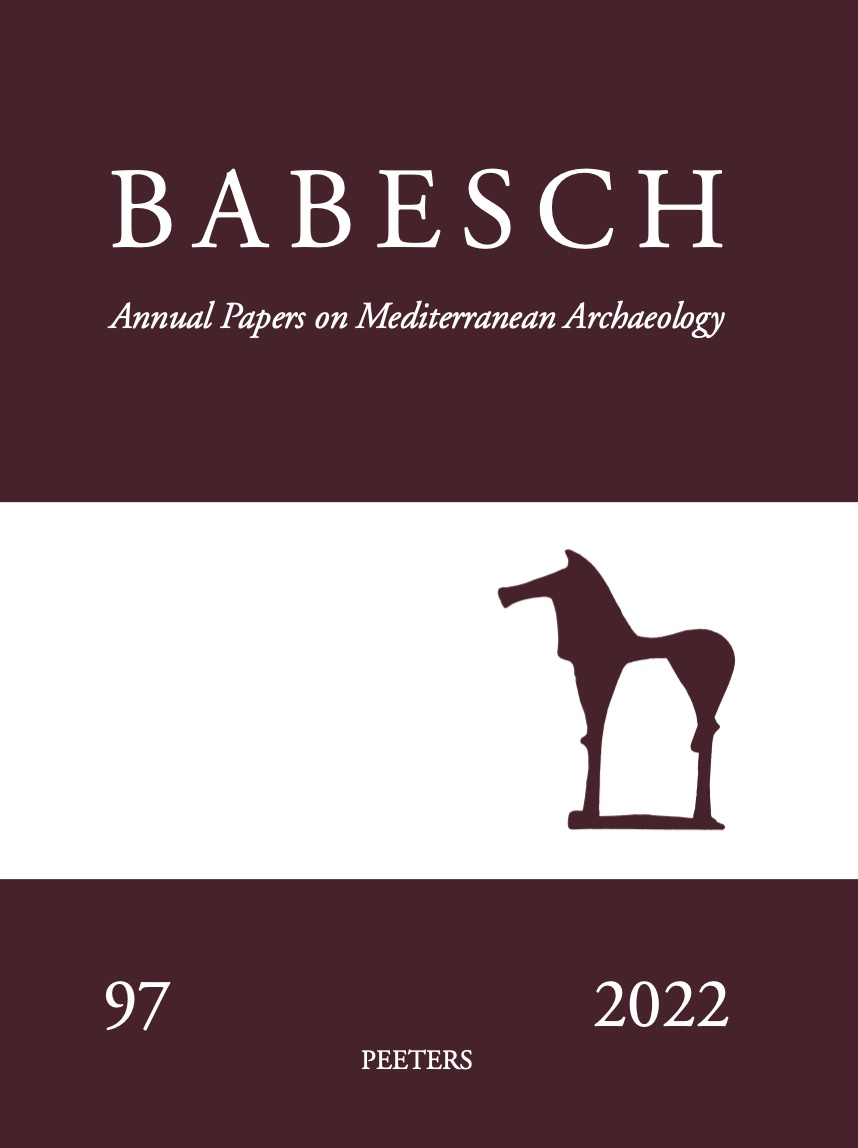 previous article in this issue previous article in this issue | next article in this issue  |

Preview first page |
Document Details : Title: Deconstructing Ethnicities Subtitle: Multiple Identities in Archaic and Classical Sicily Author(s): GIANGIULIO, Maurizio Journal: BABESCH Volume: 85 Date: 2010 Pages: 13-23 DOI: 10.2143/BAB.85.0.2059887 Abstract : The present contribution discusses the notions of acculturation, ‘middle ground’, and hybridity, suggesting that one should frame in terms of hybridity only those colonial situations whereby volatile overlappings and intertwinings of identities and practices take place, changes in identity are the rule, and fluidity and multiplicity go beyond every static dichotomy. Attention is paid particularly to colonial encounters in archaic and classical Sicily. A reconsideration of the evidence suggests that there are no cogent reasons to think that ethnic differentiation was the most salient line of demarcation. Neither artifacts and practices were primarily characterised by their ethnic origin, nor a straightforward correlation between language and ethnic presence can be taken for granted. More specifically, archeological and inscriptional evidence coming from the settlements of Montagna di Marzo and Morgantina, as well from Castiglione di Ragusa and the Hyblaean region is taken into account. They are hinterland environments located in areas which have often been seen as partially Hellenized, in which the colonial encounters do not seem to have had the effect of crystallizing cultural identities. The conclusion seems inevitable that many areas of sixth-century Sicily should be seen in the same way as precolonial Africa is seen by J.-L. Amselle, the French anthropologist who criticized in an inspiring manner the anthropology of identities merely focused on ethnic categories. Those were areas in which ethnic and territorial boundaries were weak or even non existing, where we are not dealing with ethnic entities in contact or with abstract cultures that interact with each other, but rather with local contexts that are ‘ensembles flous’, as Amselle would say: places where varied relationships and senses of membership coexisted, where the identities were changeable and not ethnically salient, being thus multicultural. |
|


